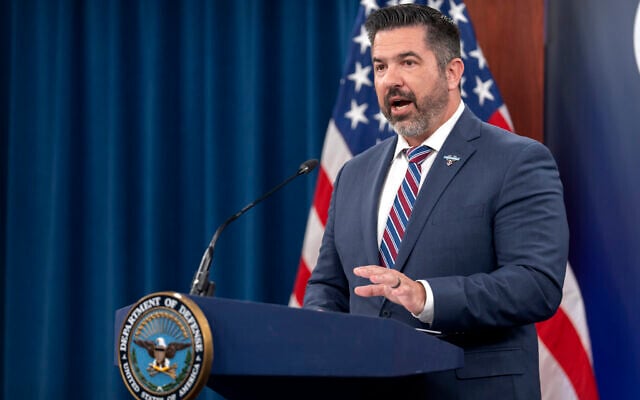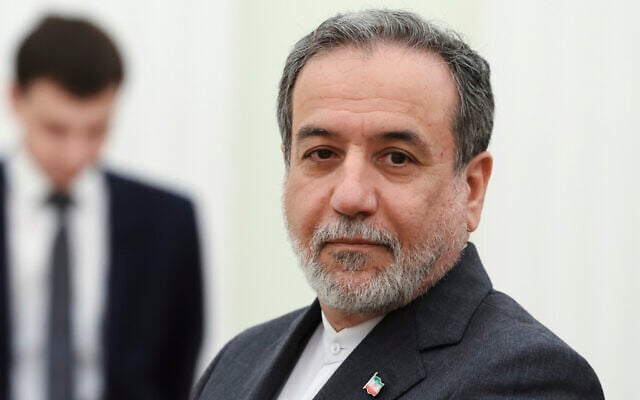



US intelligence assessments indicate that strikes on Iranian nuclear sites set the country’s atomic program back by up to two years, the Pentagon said on Wednesday.
“We have degraded their program by one to two years at least — intel assessments inside the (Defense) Department assess that,” Pentagon spokesman Sean Parnell told journalists, later adding: “We’re thinking probably closer to two years.”
American B-2 bombers hit two Iranian nuclear sites with massive GBU-57 bunker-buster bombs last month, while a guided missile submarine struck a third site with Tomahawk cruise missiles.
Israel launched an unprecedented air campaign targeting Iranian nuclear sites, scientists and top military brass on June 13 in a bid to end the country’s nuclear program, which Tehran says is for civilian purposes but Washington and other powers insist is aimed at acquiring atomic weapons.
US President Donald Trump had spent weeks pursuing a diplomatic path to replace the nuclear deal with Tehran that he tore up during his first term in 2018, but he ultimately decided to take military action.
The US operation was massive, involving more than 125 US aircraft including stealth bombers, fighters and aerial refueling tankers as well as a guided missile submarine.
The evolving US intelligence about the impact of the strikes is being closely watched, after Trump said almost immediately after they took place that Iran’s program had been obliterated, language echoed by Parnell at Wednesday’s briefing.
Such conclusions often take the US intelligence community weeks or more to determine.
“All of the intelligence that we’ve seen (has) led us to believe that Iran’s — those facilities especially, have been completely obliterated,” Parnell said.
Over the weekend, the head of the UN nuclear watchdog, Rafael Grossi, said that Iran could be producing enriched uranium in a few months, raising doubts about how effective US strikes to destroy Tehran’s nuclear program have been.
Several experts have also cautioned that Iran likely moved a stockpile of near weapons-grade highly enriched uranium out of the deeply buried Fordow site before the strikes and could be hiding it.
But US Defense Secretary Pete Hegseth said last week he was unaware of intelligence suggesting Iran had moved its highly enriched uranium to shield it from US strikes.
A preliminary assessment last week from the Defense Intelligence Agency suggested that the strikes may have only set back Iran’s nuclear program by months. But Trump administration officials said that assessment was low confidence and had been overtaken by intelligence showing Iran’s nuclear program was severely damaged,
According to Iranian Foreign Minister Abbas Araqchi, the strikes on the Fordow nuclear site caused severe damage.
“No one exactly knows what has transpired in Fordow. That being said, what we know so far is that the facilities have been seriously and heavily damaged,” Araqchi said in the interview broadcast by CBS News on Tuesday.
He added that while the targeted nuclear facilities may not be intact “the technology and knowhow is still there.”
When pushed on whether Tehran would return to enriching uranium, Araghchi said Tehran was “in the process of assessments… and developing our policies.”
“We have also gone through 12 days of imposed war in addition to all that we have done for this nuclear program. Therefore, people will not easily back down from enrichment.”
The US and Israel said the strikes were intended to prevent Iran from attaining nuclear weapons and to radically degrade its ballistic missile capabilities.
Iran, which openly seeks to destroy Israel, claims its nuclear program is solely geared toward civilian use, but it has enriched uranium to 60 percent purity, above levels needed for civilian usage and a short step from the level needed for weapons production, obstructed international inspectors from checking its nuclear facilities, and expanded its ballistic missile capabilities.
Israel says it holds intelligence information indicating that Tehran was taking active steps to build a bomb. It has also warned that it could take further military steps if it sees Iran attempting to rebuild its nuclear and missile programs.


